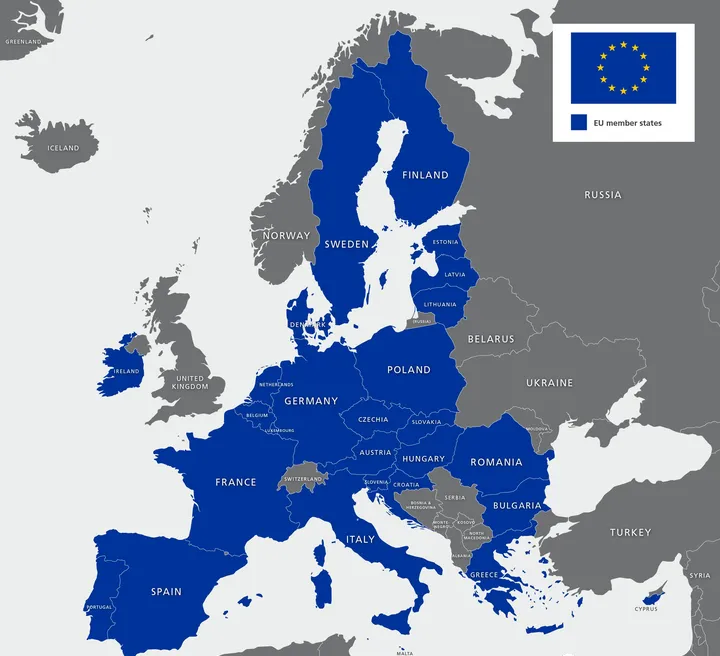
Differences Between e-Mark Certification and CE Certification
When discussing the differences between e-Mark certification and CE certification, it is important to understand that both are common product compliance requirements in the European market. However, they have significant differences in terms of their objectives, scope, and processes. Below, we will detail the main differences between these two certifications.

Certification Objectives and Application Scope
e-Mark Certification:
- Also known as E-mark certification, it is a certification system implemented by the United Nations EconoMIC Commission for Europe (UNECE) for vehicles and their parts.
- Its core objective is to ensure that vehicles and their components meet relevant European directives and standards to safeguard road users' safety and environmental protection.
- e-Mark certification primarily applies to automobiles, motorcycles, electric vehicles, and related components.
CE Certification:
- The ce marking is a mandatory conformity mark for products within the European Union (EU), indicating that they meet essential requirements for safety, health, and environmental protection.
- The ce mark acts as a passport for products to enter the European market.
- The scope of CE certification is very broad, covering almost all industrial products, including but not limited to machinery, electrical and electronic equipment, medical devices, and construction materials.
Certification Standards and Requirements
e-Mark Certification:
- Based on UNEce regulations (ECE RegULation), which are technical regulations for vehicles and their components.
- These regulations stipulate technical requirements, testing methods, and conformity assessment procedures.
- Manufacturers must conduct tests and evaluations according to ECE regulations to ensure their products meet relevant standards.
CE Certification:
- Based on European directives (EU Directive) and corresponding harmonized standards.
- European directives outline basic requirements, while harmonized standards provide detailed explanations and supplements.
- Manufacturers must perform tests and evaluations according to directives and standards to ensure their products meet safety, environmental, and health requirements for the European market.
Certification Process and Institutions
e-Mark Certification:
- The process is relatively complex, typically involving application, testing, evaluation, and certification steps.
- Manufacturers must submit applications to certification bodies and perform tests as per ECE regulations.
- Upon passing the tests, the certification body will evaluate and issue the e-Mark certificate.
- e-Mark certification bodies are usually national vehicle management departments or authorized institutions.
CE Certification:
- The process is relatively straightforward; manufacturers can self-declare that their products meet relevant directives and standards, then affix the CE mark to their products.
- To ensure compliance, manufacturers often employ third-party testing bodies for tests and evaluations.
- After passing the tests, the testing body issues a test report, which manufacturers can use as proof of product conformity.
- CE certification bodies are typically EU-recognized third-party testing institutions.
Legal Liability and Market Access
e-Mark Certification:
- It is mandatory; products that do not pass e-Mark certification cannot be sold in the European market.
- Manufacturers must ensure ongoing compliance with relevant requirements after obtaining the e-Mark certificate and bear the corresponding legal liabilities.
CE Certification:
- Although mandatory, manufacturers can self-declare compliance and affix the CE mark to their products.
- If products are found to be non-compliant with relevant directives and standards, manufacturers face legal liabilities, including potential product recalls and fines.
- European market surveillance authorities have the right to conduct spot checks and inspections to ensure products comply with CE certification requirements.
In summary, e-Mark certification and CE certification differ significantly in terms of objectives, scope, standards, processes, institutions, and legal responsibilities. Manufacturers must choose the appropriate certification method based on the characteristics of their products and the requirements of their target market to ensure compliance with relevant standards.
Email:hello@jjrlab.com
Write your message here and send it to us
 How Do You Get a CE Mark
How Do You Get a CE Mark
 IEC 60529 IP Rating Ingress Protection Standard
IEC 60529 IP Rating Ingress Protection Standard
 IEC 60601-1 Medical Electrical Equipment Basic Saf
IEC 60601-1 Medical Electrical Equipment Basic Saf
 European Authorized Representative Medical Devices
European Authorized Representative Medical Devices
 EU Waste Electrical and Electronic Equipment Direc
EU Waste Electrical and Electronic Equipment Direc
 How to Get CE Approval
How to Get CE Approval
 Accelerated Ageing Test
Accelerated Ageing Test
 IP Ingress Protection Testing
IP Ingress Protection Testing
Leave us a message
24-hour online customer service at any time to respond, so that you worry!




